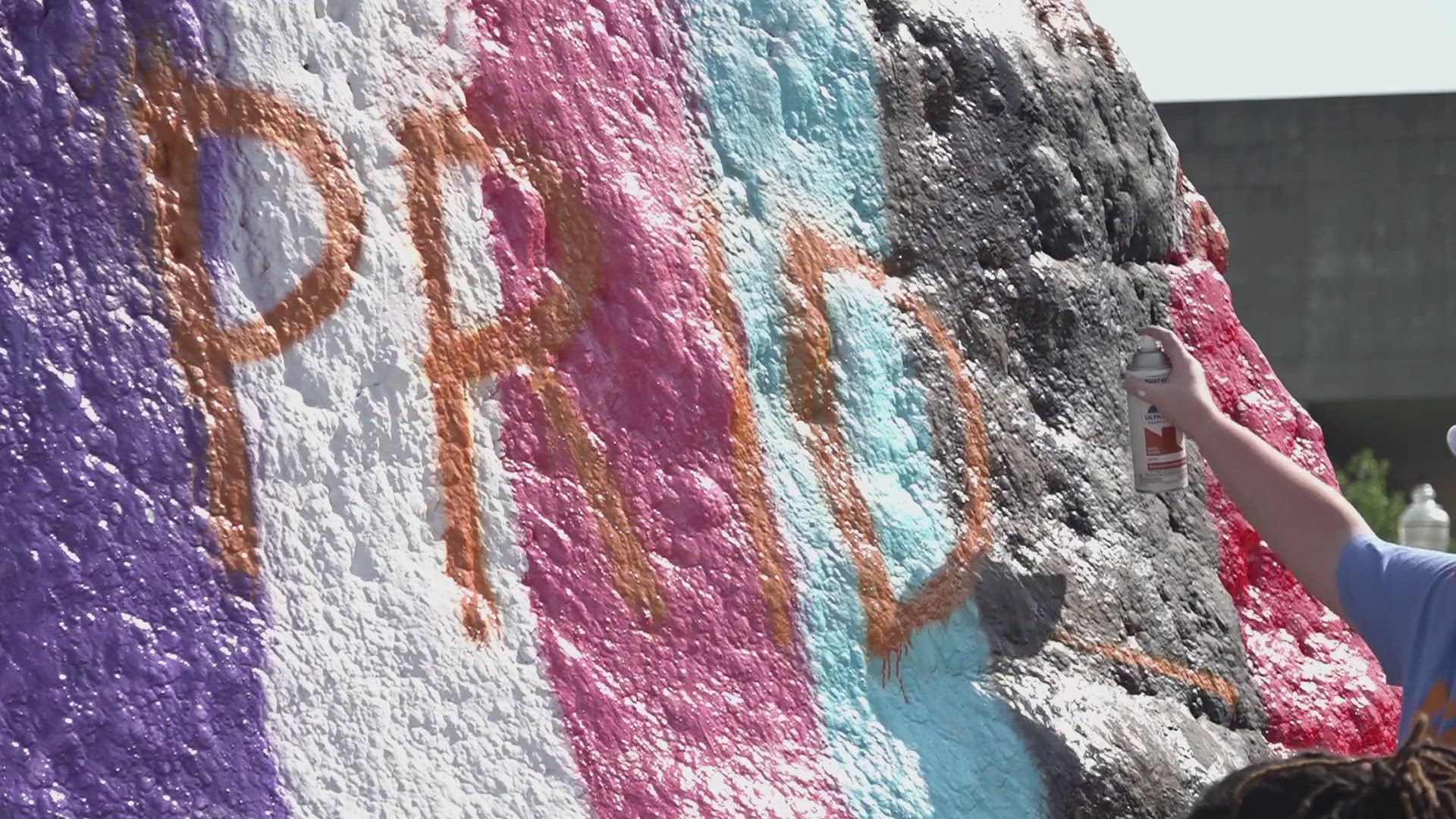KNOXVILLE, Tenn. — Marsha P. Johnson was a drag performer whose work during the Stonewall Uprising and afterward made her an icon among the LGBTQ+ community. When asked about her identity, she would tell people to "pay it no mind," according to the University of Tennessee Pride Center.
They painted The Rock on campus, wishing everyone a happy Pride Month while also quoting her.
"At the end of the day, their understanding of her identities should not have impacted her being treated in a respectful and affirming way," they said on social media. "In an increasingly challenging climate for LGBTQ+ communities, we encourage everyone to hold their loved ones close, exercise your voting rights, and pay no mind to anyone wishing you ill this Pride Month!"
According to the National Women's History Museum, her adopted full name was Marsha "Pay It No Mind" Johnson. She turned to sex work after difficulty finding employment, and she faced abuse from clients and was arrested by police.
Without a permanent home, she slept at friends' homes and in hotels, restaurants and movie theaters. She would sometimes find work waiting tables or performing in drag shows.
"I was no one, nobody, from Nowheresville until I became a drag queen," she once told reporters in a 1992 interview, according to the museum.
On June 28, 1969, she was involved in the police raid at the Stonewall Inn which kicked off the Stonewall Uprising. She would later lead a series of protests and helped galvanize the gay rights movement.
She later joined the Gay Liberation Front and the Gay Activist Alliance. She also helped create the "Street Transvestite Action Revolutionaries," an organization that sheltered young transgender people who were shunned by their families. The term "transgender" only became common after her death.
She also helped create the STAR House, where transgender youth could stay and feel safe, according to the museum.
She was found dead on July 6, 1992, in the Hudson River. She was 46 years old. That year was one of the worst years on record for anti-LGBTQ+ violence, according to the New York Anti-Violence Project.
Her death was initially ruled a suicide. Police later reclassified the case as a drowning from an undetermined cause, according to the museum, but did not investigate further. The New York Police Department reopened the case two decades later, in 2012.
A monument was later built featuring her in 2019, commissioned by a public art campaign named "She Built NYC." A waterfront park in Brooklyn was also named after Johnson, and she has become one of the most recognized LGBTQ+ advocates across the U.S.

